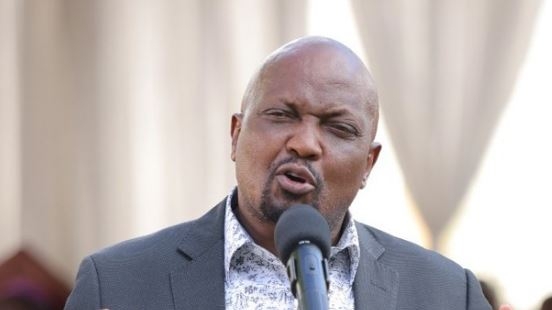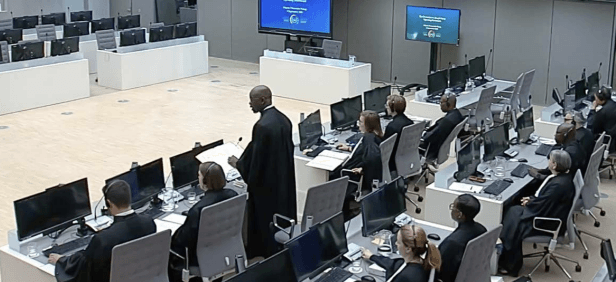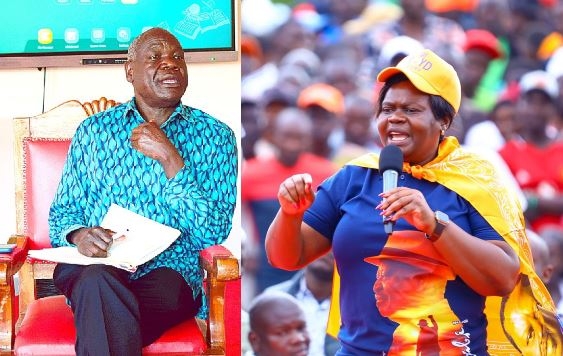Lawyers have rejected a bid by the Kenya Revenue Authority to access taxpayers’ Mpesa and bank account details in tax cheats and compliance probes.
The Law Society of Kenya in a memorandum to Parliament has said the proposal contained in the Finance Bill, 2024, compromises the right to privacy.
“The proposal undermines the rights guaranteed by Article 31 and Article 24 of the Constitution,” LSK said in the memo signed by its president Faith Odhiambo.
President William Ruto’s administration in this year’s tax law seeks to give KRA unfettered access to Mpesa and bank accounts.
In the Bill which is before the National Assembly’s Finance Committee, the National Treasury wants the taxman exempted from the law prohibiting it from accessing taxpayers’ private data.
“The processing of personal data is exempt from the provisions of this Act if disclosure is necessary for the assessment, enforcement or collection of any tax or duty under a written tax law,” the Bill reads.
This means KRA would have power to monitor transactions on Paybills, bank accounts and applications that businesses and individuals use.
Currently, the taxman cannot compel banks and telecommunications companies to disclose customers’ data unless served a court order.
The Data Protection Act bars unrestrained access to data unless it relates to an individual undertaking a personal activity, national security or public interest.
Thus, KRA only has control of salaries, from which Pay as You Earn (income tax) is deducted.
To slap a taxpayer with a bill from other incomes not expressly stated in the Income Tax Act, the revenue authority has to move to court to seek orders.
This is the situation that Treasury seeks to address and has in this regard proposed amendments to the data protection law to remove the exemptions.
Ruto’s team wants MPs to amend Section 51(2) of the Data Protection Act to grant KRA an exemption “when disclosure is necessary for the assessment, enforcement or collection of any tax or duty under a written tax law.”
If approved, KRA would access monies hidden and undeclared by taxpayers under their radar.
“We propose that the proposed amendment be rejected,” LSK told MPs, saying if carried, the proposal would be problematic and would go against the supreme law which recognises the right to privacy.
“It is essential to reconsider this approach and ensure that data protection laws apply uniformly to all relevant entities, including the KRA,” the society said.
The right provided in Article 31 of the Constitution “ensures that individuals’ personal information remains confidential and protected.”
“Additionally, the Data Protection Act imposes obligations on state agencies, emphasising data security, responsible data collection, and limitations on data usage,” the legal brass said.
While rights may be limited ‘reasonably’, the limitations must be checked.
“Such limitations must align with democratic principles, human dignity, equality, and freedom,” the society added.
It further pointed out that the law outlines instances where information disclosure is legally mandated, “particularly when public authorities require data for specific tasks.”
KRA would be armed with tools to harass taxpayers’ and as such, the legal brass wants the government to state clearly ‘what constitutes necessary actions for tax assessment or collection’.
“Without precise definitions, there is potential for abuse, such as unwarranted assessments on personal accounts if the KRA fails to meet tax collection targets,” LSK said.
The lawyer’s body adds that the exemption would remove KRA’s obligation to adhere to data privacy laws while handling taxpayers’ information.
“Consequently, taxpayers’ rights as data subjects may be compromised, especially when the KRA shares data with other state agencies.”
Lawyers further want MPs to reject the proposed motor vehicle tax and withholding tax on income derived from digital marketplaces.
LSK has also rebuffed the bid to introduce eco-levy, VAT to bread, VAT on financial services, increase excise duty on telephone and mobile money transfer services.
“Imposing VAT on these services will deter Kenyan businesses from restructuring their financing arrangements due to the additional, likely irrecoverable, VAT cost.”













